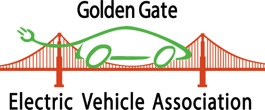Whether to Buy or Lease.
Drivers who are getting a new EV face the decision on whether to buy or lease the car. In the past most individuals tended to buy their cars and only businesses leased cars.
The situation has changed for electric vehicles. There are many attractive lease deals for EVs. Check the current offers to sse if leasing an EV might be more economical for you than buying.
Some of the points to consider are:
- When the driver leases the car, the manufacturer's leasing division is elligible for the federal tax credit, not the driver. If your taxes are too low to use the federal tax credit, leasing may be an advantage for you.
- Because the federal tax credit can be applied to the lease by the manufacturer, the total cost of all of the monthly lease payments plus the initial down payment may be considerably less than the amount a purchased car would depreciate over the same time period.
- Drivers who lease a car for 30 months or more are elligible for the California rebate. The rebate may cover the initial down payment on the lease.
- Electric car technology is changing very rapidly. A leased car can be turned in at the end of the 2 or 3 year lease for a new electric car with all of the updated safety features, autonomous driving features, and possibly a larger capacity battery.
- Cars that are turned in at the end of the lease add to the pool of used very affordable EVs that are available for people who don't wish to buy new cars and people who can't afford to buy or lease a new car. This helps to expand the number of EVs in use.
- Lease payments tend to be based on your credit score. The better your credit score the lower the lease payment you are likely to be offered.
